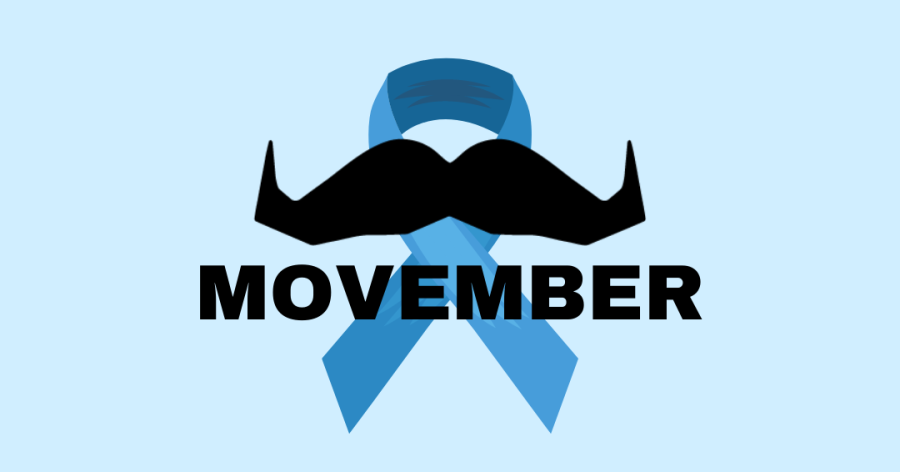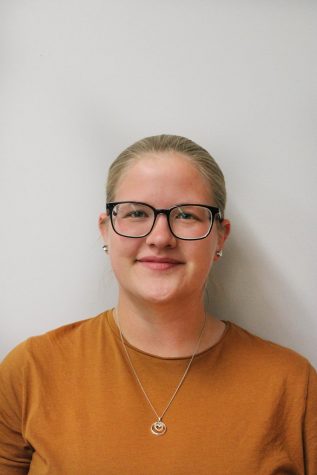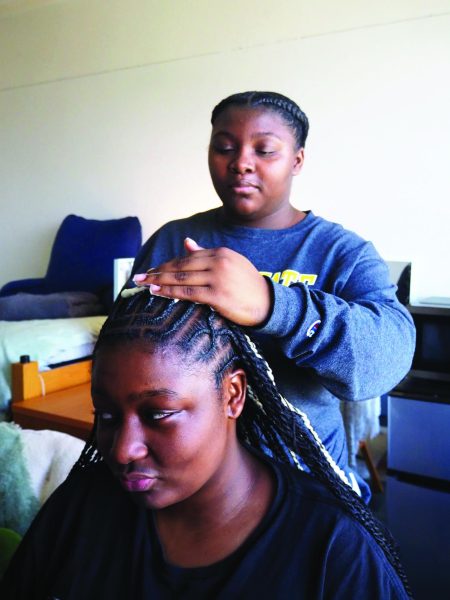Movember and Men’s Health Awareness Month
It’s Movember and Men’s Health Awareness Month! Graphic courtesy of Agnes Kurtzhals
November 10, 2021
Nov. brings Men’s Health Awareness Month, also known as “Movember.” The Movember Foundation, members from Wayne State College’s club Active Minds and the director of the counseling department on campus, give insight into men’s health issues, focusing on mental health and suicide.
Travis Garone and Luke Slattery started Movember in 2003, according to the Movember Foundation website. The campaign raises awareness of men’s health and accumulates millions of dollars worldwide to donate to mental health, prostate and testicular cancer organizations, and to research.
In 2020, the company raised $99.5 million across 20 countries to support their cause. $16.2 million came from the United States alone.
“These donations allow us to raise awareness, invest in vital men’s health initiatives and run Movember each year,” a spokesperson for the Movember Foundation said. “We want to help men live happier, healthier and longer lives. We do this by investing in the following critical areas: mental health and suicide prevention, prostate cancer and testicular cancer.”
The organization encourages men to grow a mustache during the month of Nov. to start a conversation about men’s health. Whether it’s a handlebar, super patchy, comes with a beard or not, all mustaches serve the intended purpose- if a person uses it as a tool to open up about men’s health issues.
Other ways to get involved include walking or running 60 miles during the month (for the 60 men who die by suicide every hour of everyday worldwide,) donate or host an event. The Movember foundation suggests hosting shave down, gaming tournaments and trivia night events, to raise awareness and funds.
According to the World Health Organization, in the United States, men are 3.5 times more likely to die by suicide than women.
Ethan Dietrich, publicity chair for Active Minds, explained this phenomenon as stemming from societal pressures for men to handle things on their own.
“Guys, more times than not, will want to try and present themselves as these big, strong guys that can handle anything that is thrown at them, but internally they are just trying so hard to fight the battles inside,” Deitrich said. “Sometimes they don’t come out victorious in those battles.”
Working past these pressures might seem hard, but finding help is something that no one should feel ashamed of. The first step, according to Will Anderson, chief of snacks for Active Minds, is realizing that you need help. Anderson wishes that everyone would realize that it is okay to not be okay.
“These times will pass and if you need help, you should try to reach out,” Anderson said. “With on-campus resources, we have the Counseling Center. Or, if a friend is willing to listen to you, you can talk to a friend about it. Or even, you have teachers and generally they can point you in the right direction.”
If you have a friend who struggles with their mental health, just offering support or listening to their situation makes a world of difference. Dietrich suggests keeping the conversation focused on the other person by listening instead of driving the discussion. Also, try not to push the person into uncomfortable topics by letting them move at their own pace.
Both men have joined Active Minds to advocate for mental health awareness. Ways they have prioritized their own mental health include meditation, exercising regularly and participating in recreational activities. Additionally, they have learned when to step back and take a break when life becomes overly stressful.
“Also, if a person is not helping you and you think they are harming your mental health, then it is okay to walk away,” Anderson said.
According to an article written by Beth Connolly for the PEW Charitable Trusts, men are twice as likely to have substance abuse disorders than women.
“It’s kind of what comes first, the chicken or the egg,” Alicia McIntosh Dorcey, director of the Counseling Department said. “Do people drink or use drugs because they are trying to self-medicate their mental health issues or does the alcohol and drugs cause the mental health issues? Both are true. Alcohol and drugs are a way to take away the pain, but it is not long term or sustainable.”
If a friend is struggling with substance use, Dorcey recommends letting them know that you care. She also notes that the person might not change their behavior, but they still need support. Always remember that you are not the only person that can help someone who faces an addiction. You do not have to take on that role alone and reaching out for help is important in that situation as well.
Male eating disorders have become another looked over aspect of men’s mental health. Dorcey attributes the rise in male eating disorders to societal pressures to appear thin and strong with a lofty focus on body composition. If you see a friend who has lost a considerable amount of weight in a short amount of time, reaching out to them can make a tremendous difference. It also presents itself as working out to the point that it interferes with other activities like classes or homework.
Dorcey would like to encourage men on campus to reach out to their friends, families or to the counseling center. There are resources to help you with any problem that you face.
“The counseling center sees a lot more women than we do men, but men are welcome in our office,” Dorcey said. “We encourage men to participate in mental health activities and come to the doctor when they are not feeling well. We want to serve men too and we encourage them to access services.”











